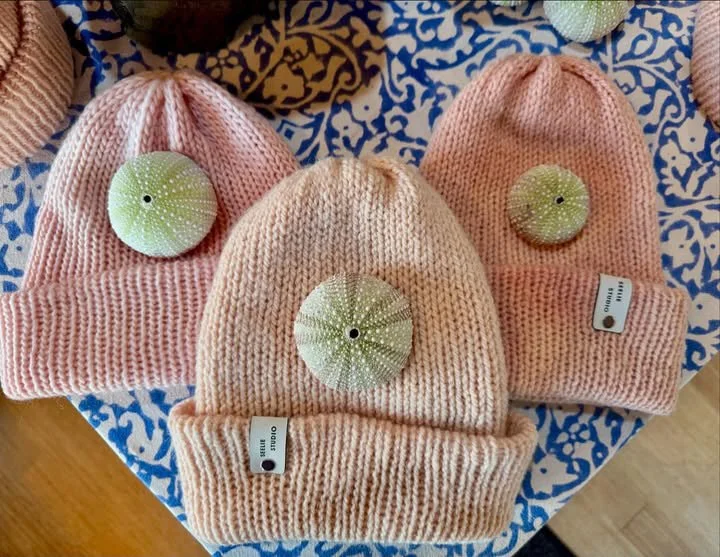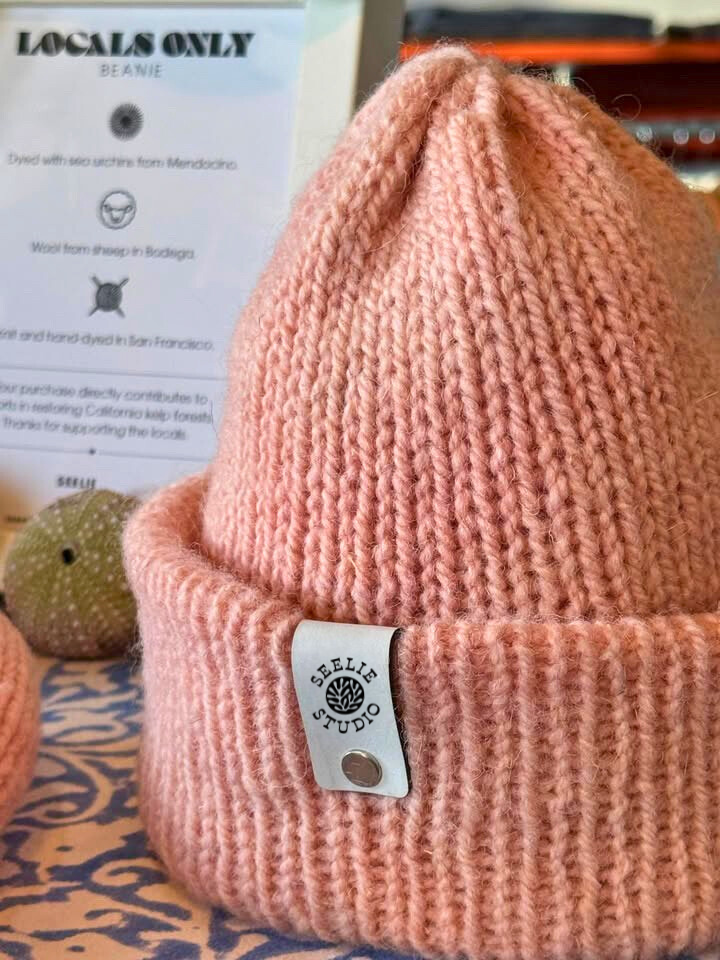What’s included:
Personal dye station with ingredients for a one-gallon sea urchin dye bath.
One wool beanie made from 100% Climate Beneficial Premium Merino Wool sourced in California.
Why urchin dye?
Purple sea urchins have eaten 95% of the kelp along the California coast.
The urchins are not the villains; rather, human-caused climate change created the “urchin problem.”
Kelp forests can sequester up to 20 times more carbon per unit area than land-based forests.
Kelp is home to thousands of different oceanic species.
Creating natural dye from sea urchins creates an incentive for the removal of sea urchins from the oceans.
Urchin dye is a way of honoring these magnificent creatures rather than discarding them.



